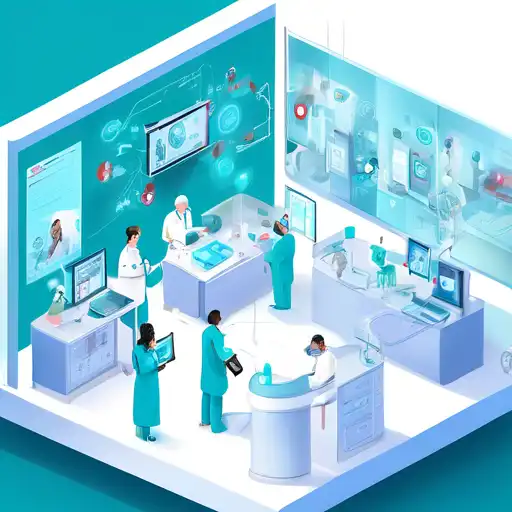The Transformative Impact of IoT on Modern Healthcare
The Internet of Things (IoT) is revolutionizing industries across the globe, and healthcare is no exception. By integrating IoT devices into healthcare services, providers are able to offer more personalized, efficient, and effective care. This article explores the myriad ways in which IoT is enhancing healthcare services, from remote monitoring to improved patient outcomes.
Remote Patient Monitoring
One of the most significant benefits of IoT in healthcare is the ability to monitor patients remotely. Wearable devices can track vital signs such as heart rate, blood pressure, and oxygen levels in real-time, allowing healthcare providers to respond quickly to any concerning changes. This not only improves patient care but also reduces the need for hospital visits, saving time and resources.
Enhanced Drug Management
IoT is also transforming drug management through smart pill bottles and dispensers. These devices can remind patients to take their medication and alert healthcare providers if doses are missed. This technology ensures medication adherence, which is crucial for treating chronic conditions and preventing complications.
Improved Hospital Operations
Beyond patient care, IoT is streamlining hospital operations. Smart beds can detect when they are occupied and adjust settings for patient comfort, while also monitoring for signs of bedsores. Similarly, IoT-enabled asset tracking systems help hospitals manage equipment more efficiently, reducing costs and improving service delivery.
Data-Driven Decisions
The vast amount of data generated by IoT devices provides healthcare providers with valuable insights into patient health and treatment outcomes. By analyzing this data, providers can make more informed decisions, tailor treatments to individual patients, and predict potential health issues before they arise.
Challenges and Considerations
Despite its benefits, the integration of IoT into healthcare is not without challenges. Issues such as data security, privacy concerns, and the need for robust infrastructure must be addressed to fully realize the potential of IoT in healthcare. However, with ongoing advancements in technology and cybersecurity, these challenges are increasingly being overcome.
In conclusion, IoT is playing a pivotal role in transforming healthcare services. From remote monitoring to improved hospital operations, the benefits are clear. As technology continues to evolve, the potential for IoT to further enhance healthcare is limitless. For more insights into how technology is shaping the future of healthcare, explore our technology in healthcare section.
